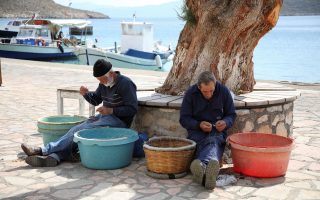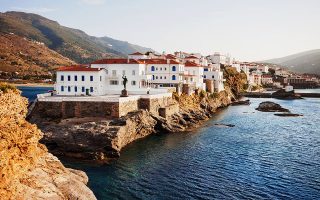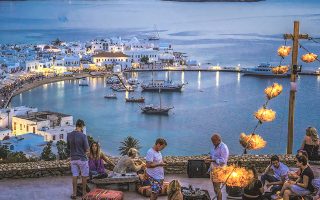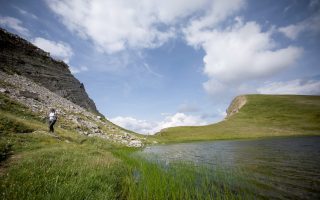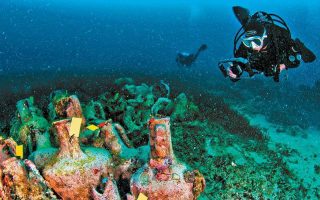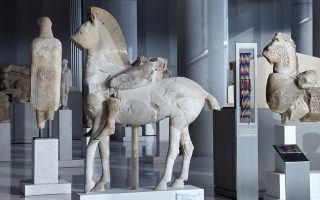The Aegean’s untouched paradise
The peculiar property regime of Polyaigos, which prevents residential development
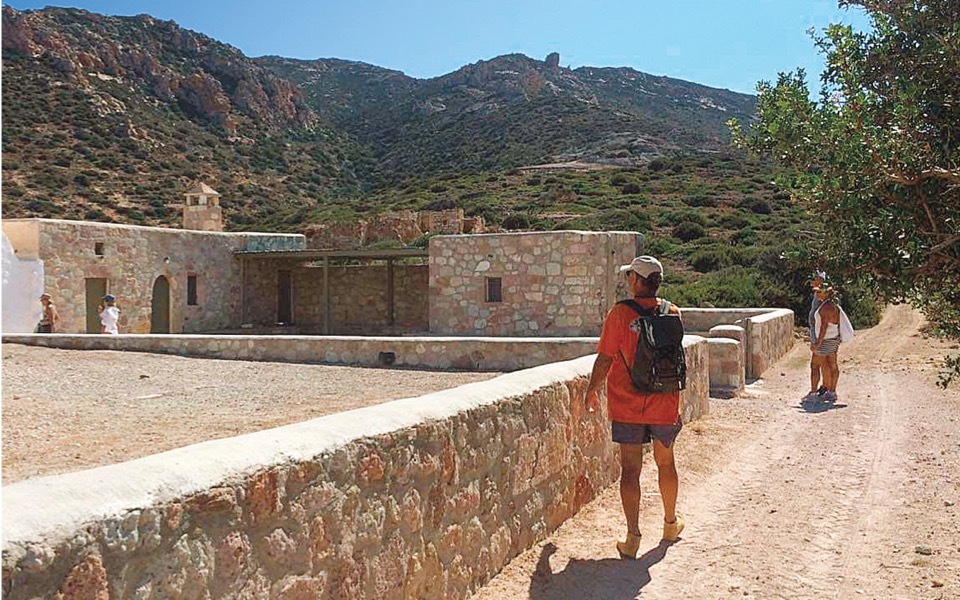
Polyaigos, one of the few remaining untouched paradises in the Aegean, is threatened by human activity. Visitors to Polyaigos are often stunned to encounter freshly renovated buildings in an otherwise quasi-deserted island. The mayor of Kimolos, a neighboring island which has administrative authority over Polyaigos, responds to such questions by explaining that the only buildings on the island are monastic cells, and that any other form of development is exceedingly hard due to the island’s strict property laws.
Polyaigos is a small island off the coast of Kimolos and its only human inhabitants are retired farmer Petros Marianos and his wife Eleftheria. It is a unique paradise, almost an oasis of sorts, which has been left untouched despite the tourism and development of neighboring islands Milos, Kimolos and Folegandros.
The island is not open to the public due to its distinct property regime. Of the island’s 17,703 acres, 17,373 are owned by a private legal entity, the estate of Ioannis-Stavros Logothetis. The rest, most of which are located in the center of the island, belong to other owners. The estate’s governing council consists of four members: the president of the local clergy, a legal representative, a representative of the mayor’s office of Kimolos, and a member of the Logothetis family.
As the mayor of Kimolos and head of the governing council, Kostas Ventouris, explains, Logothetis’ will states that the island of Polyaigos should be leased out for the sole purpose of being used as pasture for animals. Furthermore, any profits can only be used in a handful of predetermined ways, among them the upkeep and maintenance of churches on the island, the maintenance of the Panagia Odigitria (Virgin Mary the Guide) monastery on Kimolos, and the provision of dowries to impoverished girls from Kimolos.
According to records made available by the government, the area owned by the Logothetis estate was leased to a company called Tampa in 2016 for around 100,000 euros per year. In recent years, however, the balance sheets reveal outstanding debts on the part of the company. Ventouris explained that “this company came with the purpose of developing Polyaigos as a tourist destination… But in the end, they could not achieve this due to the island’s protected status, and ended up leaving. As of today, Polyaigos is not being leased out.”
Regarding the island’s renovated buildings, Ventouris claims they are monastic cells which were restored by the estate and are only used once a year, on August 22, when the church celebrates the Novena of the Virgin Mary. He adds that “a small-scale work permit has been issued to construct a small private house, but the work has not begun due to pandemic restrictions.”
It should be noted that Polyaigos, in its entirety, has been designated a Natura 2000 site, part of the EU Commission’s Natura network of protected areas. In 2000, as part of the LIFE Program for the Mediterranean monk seal (Monachus monachus), also by the EU Commission, a special environmental study was published that proposed creating a national marine park in Kimolos and declaring Polyaigos a protected area.
The local community, however, reacted negatively and convinced the Environment Ministry not to establish a framework for increased protection of the islands.
